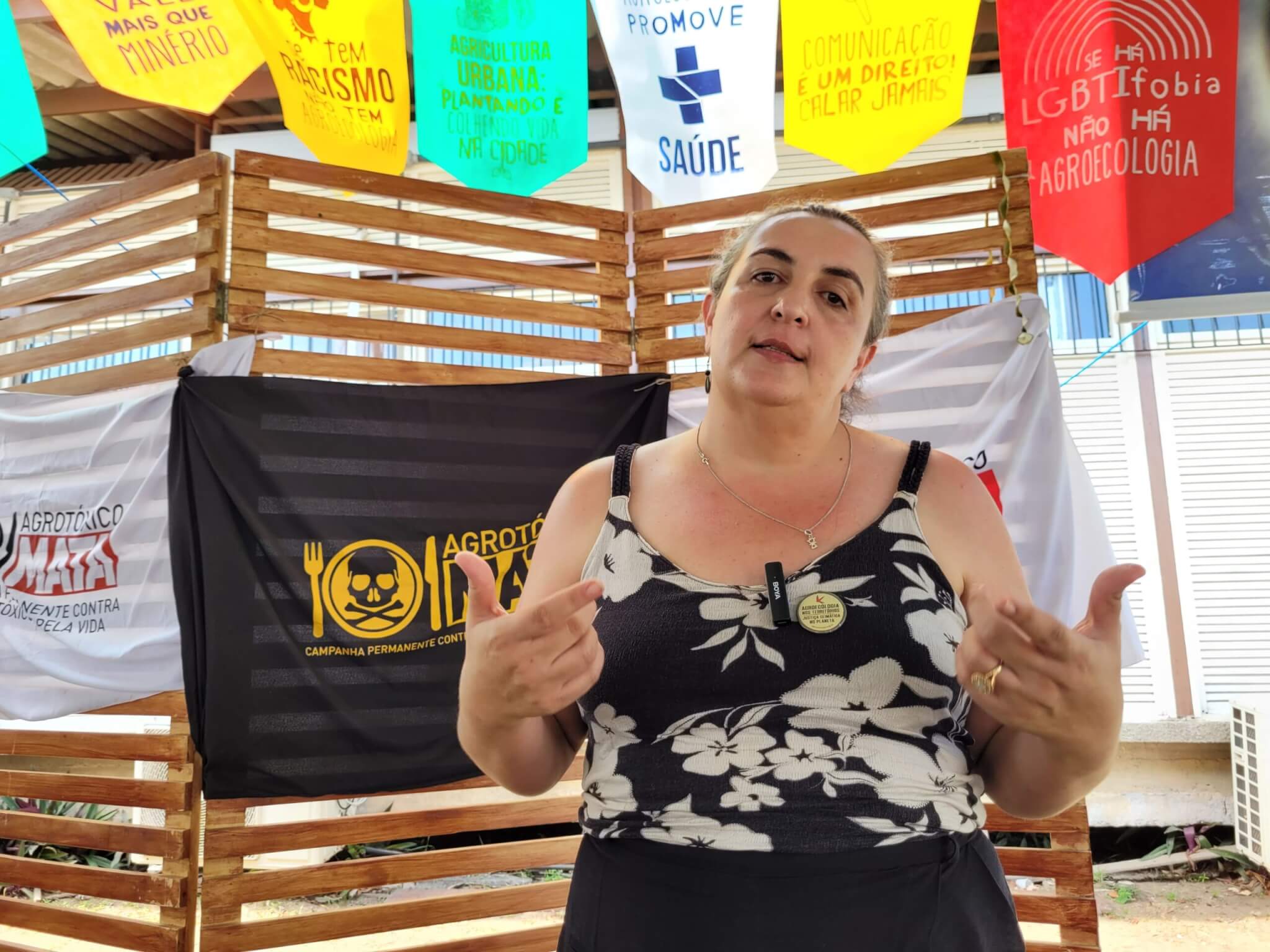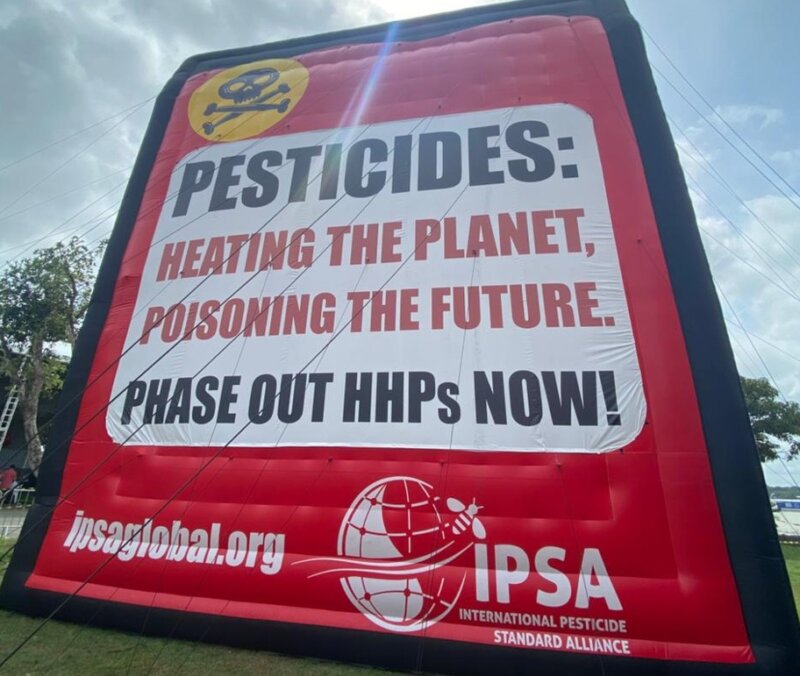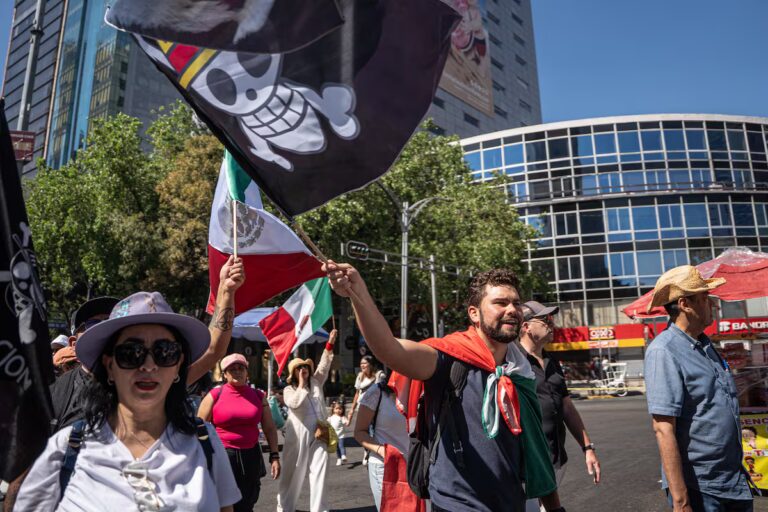
Banned abroad, published here: Ministry of Agriculture approves 30 new pesticides in Brazil during COP30
Mapa opens the door to new chemical ingredients that are banned in the European Union.
Written by Karolina Batayer*, BdF
As if it weren’t enough that Brazil is the world’s biggest consumer of pesticides, the Ministry of Agriculture and Livestock (MAPA) has released 30 new poisons for domestic use. The approval, announced last Tuesday (11th), the day after the start of the 30th United Nations Climate Change Conference (COP30), is another example of the contradiction between environmental protection discourse and the political decisions affected by environmental protection. lobby Agribusiness evaluation by Jakelin Pivat (Perpetual Campaign Against Pesticides and For Life).
“Overseas we are being sold an image of sustainability, but at home we continue to have a policy of pollution and lack of control,” he said in an interview. Actually Brazil During the People’s Summit, a movement parallel to the official program of COP30, held in Belem. “Brazil continues to establish itself as the world’s largest consumer of poisons. While we are here, the market continues to expand, represented around the world, and competing with false solutions.”
The list of pesticides published by Mapa by the Agricultural Defense Secretariat’s Plant Health and Agricultural Inputs Department includes ingredients that are banned in the European Union, which has very strict residue limits. Among the substances in the registered product are azoxystrobin and trifloxystrobin, which have been linked to fetal malformations and neurological problems. This approval includes a new type of glyphosate with potential carcinogenic, reproductive and endocrine effects.
Approved substances also include crocernapyr, S-metolachlor, and prothioconazole, all of which have already recognized effects, including toxicity to fish and birds, groundwater contamination, fungal resistance, and direct risks to human health.
“It’s a mockery,” defined Paulo Petersen of the National Agroecological Articulation (ANA), which is also involved in organizing the People’s Summit. “This is a message that says, ‘We’re doing COP 30, so we’re going to launch 30 pesticides here.’ It wasn’t 29, it wasn’t 31. I think this needs to be condemned,” he says.
Inside the tent is one area set aside for discussions about family farming, with posters and flags conveying the message: “Pesticides kill people.” Photo: Carolina Bataier/Brasil de Fato
“Pesticide use is linked to the agricultural model.”
On Thursday (14th), Pivat and Petersen took part in a debate as part of the People’s Summit in a tent erected on the lawn of the Federal University of Pará (UFPA), a few meters from the banks of the Guama River. Until November 16, more than 15,000 people, including indigenous peoples, quilombolas, landless people, riverine peoples, and many other traditional peoples and communities, will be touring the summit to bring their experiences and grievances to the summit.
Among the problems these people face is pesticide contamination. Many communities are located near monoculture plantations. This is happening rapidly in Brazil, where more than 70% of the agricultural area is occupied by monoculture plantations. merchandisesuch as soybeans, corn, and other products grown on a large scale using pesticides.
Support Viomundo
In a tent, one of the areas organized for a discussion on family farming, posters and flags convey the message: “Pesticides kill people.” “The use of pesticides is linked to the agricultural model of monoculture, in which pesticides are part of what is needed in quotation marks,” emphasizes geographer Larissa Mies Bombardi, researcher at the Institute of Agroecology at ULB (Free University of Bruxelles) and author of .Geographical Atlas of Pesticide Use in Brazil and Relationship with the European Union”.
On Tuesday morning, researchers took part in an event warning of the need to ban HHP (an English acronym for highly toxic pesticides) and set up a 12-metre-high inflatable on the event’s lawn.

“Pesticides: Warming the Earth, Polluting the Future” Message on a 12 meter inflatable at the People’s Summit Photo: Gaia Penteado/De Olho nos Ruralistas
“These are substances that are banned in the European Union, and we call for an immediate global ban on HHPs, because it is impossible to continue to know about the effects of these substances. It is impossible to accept that some people are affected by these substances and others are not,” he warns.
Bombardi, a participant in the People’s Summit, believes this space is essential for discussions on pesticide use in Brazil. “There is an interaction here of so many social movements, organized civil society groups. And through this path we will achieve transformation, we will achieve change. I don’t know any other way. Governments will move according to how we position ourselves,” he says.
The Actually Brazil We contacted the Ministry of Agriculture and Livestock (Mapa) regarding this matter, but received no response until the publication of this report. The space remains open.
Please also read
Persecuted scientist conducts unprecedented investigation in Brazilian study showing effects of pesticides on human health
Brazil needs to choose between environmental leadership and agrochemical leadership, says organization Terra de Direito
Chamber of Commerce approves project to commonly release pesticides that cause cancer and genetic mutations. How did your state’s legislators vote?



